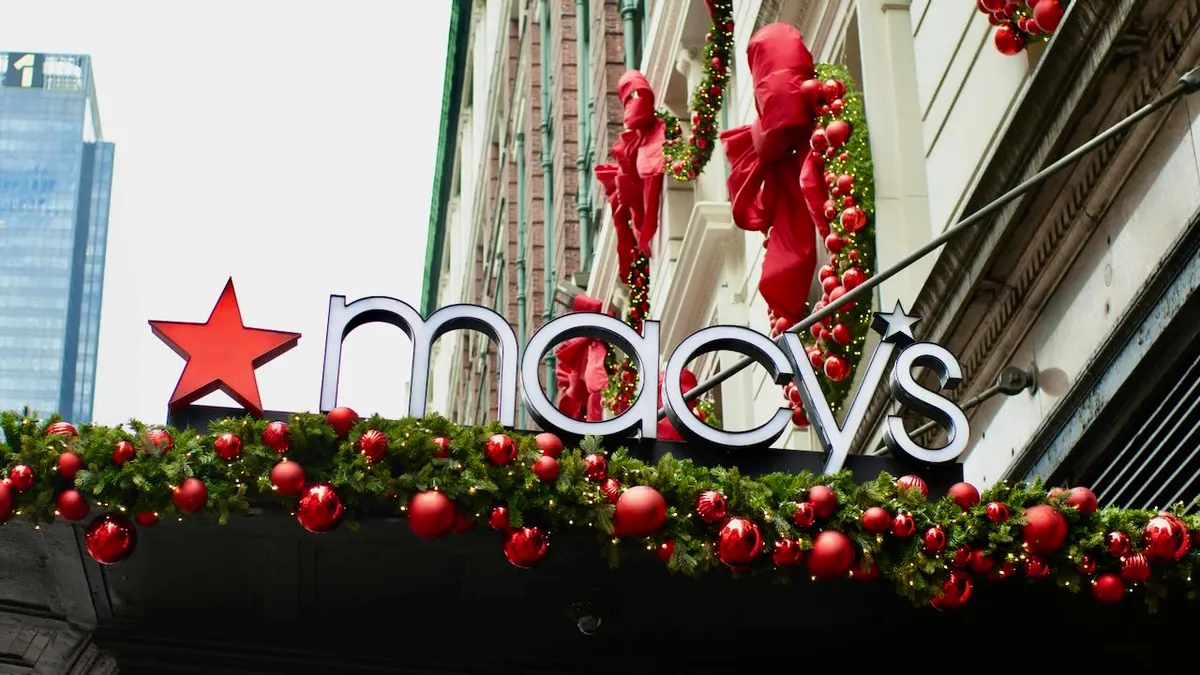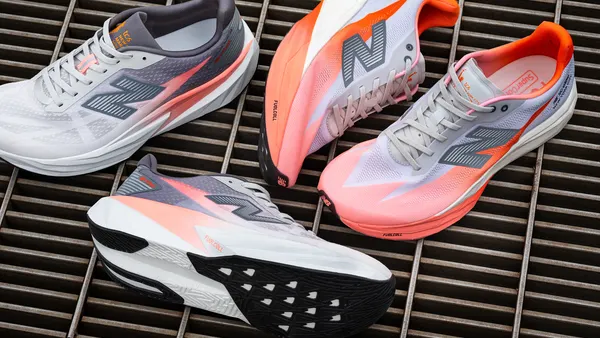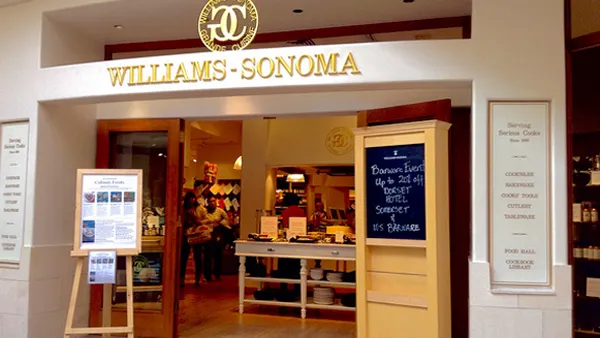LAS VEGAS — "Retail is back," declared Ulta Beauty CEO Mary Dillon on Monday, as she took the stage at Shoptalk, singing along to Run DMC's Tricky. But she wasn't referring to her brand, Ulta hasn't suffered the setbacks of its retail competitors in the last few years, thanks in part to Dillon's leadership and the retailer's position in the marketplace.
"We've been on a little bit of a tear," she said. This is a bit of an understatement.
Ulta Beauty sits in a retail sweet spot today: A popular product category with high margins and frequent buyers that lends itself to new technology in a way that many retailers can only dream of.
Beauty as a category has outperformed much of the industry and Ulta's financial performance reflects this. Net sales are up 22% over five years and comparable store sales up in the low- to mid-teens. "Beauty is a great place to be," Dillon said. "We've more than doubled sales since 2013."
It's also a category that dovetails with a host of trends today. The product is experiential, one in which shoppers like to experiment, particularly in stores. Online sales too are trending up. Last year, e-commerce grew more than 60%, largely with incremental sales, noted Dillon.
Demographic trends also favor Ulta, according to Dillon. "We happen to believe we live in a world that will continue to need connections, and beauty plays a large role in that," she said, pointing the growing awareness of gender fluidity and changing racial makeup of the U.S. Close to half of all babies born today are multiracial and the growing Hispanic population over-indexes in beauty, she told the audience.
Changing social mores go hand in hand with changing shopper behavior, as new patterns of personal consumption take shape. "What's old is new again," Dillon told attendees. Consumer tastes harken back to a time when goods were handmade and more personal.
Service, and services, are critical components in any retailer's strategy and Ulta is no exception. Salon services are an anchor for the chain, bringing in customers, driving loyalty — Ulta ended 2017 with more than 28 million loyalty club members who drove close to 90% of all sales — and repeat visits and providing the human interaction that is so important even in this increasingly digital age.
To further cement this position, Ulta is exploring "next-level partnerships," Dillon said, including a test with Facebook designed to measure the effectiveness of social media and advertising on online shopping.
Ulta is also testing a mobile program in partnership with Spruce Labs that will make it easier for customers to check in for appointments and allow salon associates to better manage schedules.
At Ulta, as for many retailers today, mobile is moving from simply a way for consumers to better access information — about products, pricing and store details — to a way to better enable store associates in and out of work. "Mobile is the center of how everyone is shopping," Dillon said. "We're investing in how we increase that amount and decrease the amount of time our associates have to spend on tasks that aren't as value added."
Beauty as a category is expected to continue to thrive going forward, and Ulta isn't alone in the sector. Sephora, another retail darling, is also experiencing dramatic growth although it carries more prestige brands. Target has become more aggressive in this category with new product launches and redesigned cosmetics departments (and has even tested beauty consultants in some locations to assist in sales), and drug stores are looking at ways to improve the positioning of these products.
Still, for Dillon and Ulta Beauty, it's a good time to be in retail.













